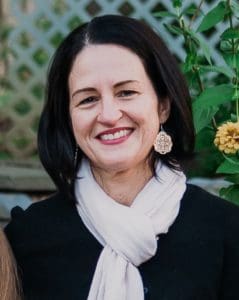From the Justice System to Mediation. Member Spotlight: Vera Hailey
Vera is a judiciary-certified mediator based in Waynesboro, Virginia. Prior to focusing on her mediation practice, she served as a Magistrate in the Supreme Court of Virginia for over twenty years. During this time, she was a trainer on crisis intervention for those working in the field of intellectual and developmental disabilities, and also served as the Magistrate System Representative for the Virginia Autism Public Safety Advisory Council. She received her Associate of Arts degree in Business Management from Hesston College and her Bachelor of Science degree in Business Management and Socio-Economic Development from Eastern Mennonite University.
The MBBI Network

As Vera embarked on her mediation journey, she came across MBBI in a search for global mediation networks. Though she was already part of the Virginia Mediation Network, she was interested in learning from mediators from both the national and international contexts. She joined as a member in early 2021 and enjoys seeing how mediation can open doors in different places.
Transitioning to Mediation
During Vera’s career with the Supreme Court of Virginia, she witnessed firsthand the experiences people had in the justice system. As a magistrate, she would see individuals in their worst moments, often right after they were arrested and when criminal charges would be first issued. The criminal justice system is often based heavily on judicial discretion. As a result, the concept of community mediation was important to her because she’d be able to contribute to people’s access to affordable, high quality mediation, as well as their agency in determining the outcomes of a conflict. “The power is in the individuals coming up with their own solutions.” During the COVID-19 pandemic, she became certified as a mediator and began taking court-referred cases through the FairField Center, a local community mediation clinic. “As a mediator, I feel like I can make a difference on the ground where people are and help them preserve relationships.”
This is important to Vera given her strong ties to the small community in which she lives. As a magistrate for over twenty years, there were people she’d see often going through the justice system, see them through their adult lives, see their children they brought with them, and see those children grow up. Her connections and familiarity with the people of Waynesboro have always been there and she values being able to engage with the community outside of the rigidity of the justice system. Though mediating divorce agreements and child custody disputes can be emotionally draining, she still finds fulfillment in her work. “Even when an agreement isn’t reached, I don’t see that as a failure because each person sat down and they were heard.”
In light of the U.S. withdrawal of forces from Afghanistan earlier this year, the local mediation center has also implemented trainings for greater understanding of individuals from the Afghan community that are relocating to the region. Despite being in a rural area, Vera says that the FairField Center has always been very culturally aware and consistently trains mediators on the impacts cultural differences have on mediation practice. Vera’s court referral work has allowed her to develop experience with people from different backgrounds and she’s able to apply these skills to mediation in a diverse community.
A Piece of Advice
Though the landscape of higher education is changing, Vera encourages people to complete their college degrees. Her careers as a magistrate and mediator were not what she expected when she first completed her undergraduate degree in business, but she says that she’s enjoyed these roles and is now able to use her business degree as a small business owner. Career paths may shift and turn, but with a college degree, there is a stronger foundation to build off of. “Nothing is wasted.”
Article by Chloe Pan, MBBI Writer
